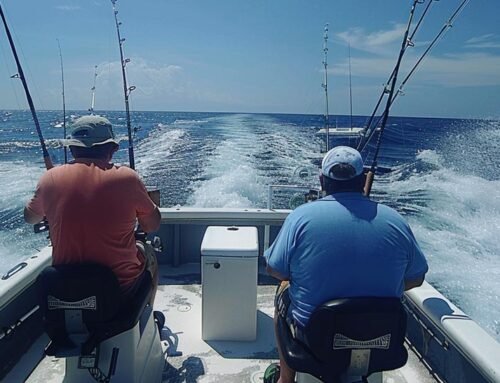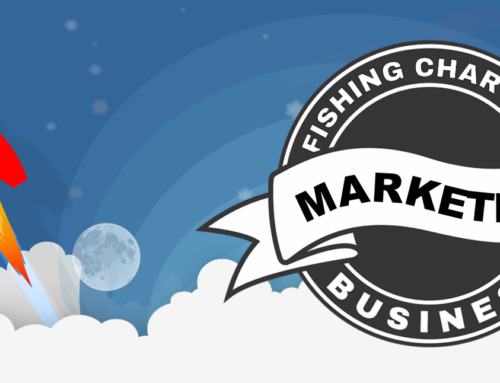Every business stands to gain from effective online marketing strategies. As a fishing charter business, your focus is on a niche market that requires unique optimization strategies to attract local customers. With the increasing use of smartphones and GPS technology, more consumers are relying on local search to find businesses near them, making Local SEO a critical element of your online marketing strategy.
This article offers a comprehensive guide on how to optimize your fishing charter business for Local SEO. We will explore the importance of Local SEO, the techniques to optimize Google My Business, how to use local keywords, and ways to leverage local directories and reviews to make your business more visible to potential customers in your area.
In this guide, you will learn how to:
- Understand the impact of Local SEO on your business.
- Optimize your Google My Business listing.
- Identify and use local keywords.
- Leverage local directories and reviews to boost your business.
With a well-rounded understanding of these strategies, you can effectively boost your fishing charter business in local search results, attracting more customers, improving your online reputation, and increasing your revenue.
Table of Contents
- Understanding Local SEO
- Optimizing Google My Business
- Leveraging Local Keywords
- Using Local Directories and Reviews
- Final Thoughts
- Sources
Understanding Local SEO
Search Engine Optimization, or SEO, is a fundamental aspect of digital marketing. It involves the process of optimizing online content to improve its visibility in search engines. While conventional SEO focuses on improving your site’s visibility on a national or global scale, Local SEO takes a more focused approach. It aims to make your business more visible in search results within a specific geographic area.
Local SEO is a critical strategy for any business that serves customers in a specific locality. Whether it’s a restaurant, a boutique, or a fishing charter business, appearing in local search results can significantly boost foot traffic, customer engagement, and ultimately, revenue.
Statistics reinforce the importance of Local SEO in today’s digital marketing landscape. A study from HubSpot revealed that 46% of all Google searches are looking for local information. Furthermore, 88% of consumers who conduct a local search on their smartphone visit or call a store within a day. This data highlights the immediate and direct impact of local search on consumer behavior.
For fishing charter businesses, this impact can’t be overstated. For example, consider a tourist planning a trip to Miami who wants to try deep-sea fishing. They might search for “best fishing charter in Miami” or “deep-sea fishing in Miami.” The goal of Local SEO is to ensure your business is visible when such locally-focused searches are made. The higher your business appears in these local search results, the greater the likelihood of the tourist clicking on your website, exploring your services, and ultimately booking a fishing charter.
Optimizing for Local SEO involves several strategies, including claiming and optimizing your Google My Business listing, integrating local keywords into your website content, and leveraging local directories and customer reviews. These strategies enhance your online presence and make it easier for potential customers in your locality to find you.
However, it’s essential to note that Local SEO isn’t a “set-and-forget” type of strategy. It requires ongoing maintenance and optimization as search engine algorithms and customer behaviors evolve over time. Staying updated with the latest Local SEO trends and continually improving your strategy can significantly improve your business’s local search performance over time.
In the subsequent sections, we delve into specific Local SEO strategies that can help boost your fishing charter business in local search results.
Optimizing Google My Business
Google My Business (GMB) is an invaluable tool for any local business. This free tool lets businesses manage their online presence across Google, including Search and Maps. When used correctly, GMB can significantly enhance your fishing charter business’s visibility in local search results.
Here’s how to optimize your Google My Business listing:
Complete Your GMB Listing
First, claim your Google My Business listing if you haven’t already. Next, ensure every part of your GMB profile is complete and accurate. Fill in your business name, address, and phone number (NAP), business hours, website, and a brief but compelling description of your business. Google favors GMB listings with complete information, so don’t leave anything out.
Keep Your NAP Consistent
Consistency is crucial when it comes to your NAP information. Make sure your business’s name, address, and phone number are identical across all online platforms. Any discrepancies can confuse search engines and negatively impact your Local SEO efforts.
Select Relevant Categories
Google allows businesses to select categories and subcategories that represent their services. Choose the most accurate and specific categories for your fishing charter business. For example, you could choose categories like “fishing charter,” “boat rental service,” or “tour operator.”
Add High-Quality Photos
Photos significantly enhance your GMB listing. Upload high-resolution images that showcase your fishing boats, equipment, and any notable catches by your customers. Photos help potential customers get a sense of what to expect from your services and can significantly boost engagement with your GMB listing.
Collect and Respond to Reviews
Encourage your customers to leave reviews on your GMB listing. Reviews are a significant factor in Google’s local search algorithm. Plus, they provide potential customers with valuable insight into the experiences of others with your business. Always respond to reviews, whether they’re positive or negative. This engagement shows that you value your customers’ feedback and can help foster trust with potential customers.
Post Regular Updates
Use GMB’s Posts feature to share updates, news, or special offers with your customers. Regular posting signals to Google that your business is active, which can positively influence your local search ranking.
Use Google My Business Insights
GMB offers insights to help you understand how customers find your business listing, what actions they take, and more. Analyze this data to identify trends, track your performance, and refine your Local SEO strategy as needed.
In summary, a fully optimized Google My Business listing is a cornerstone of effective Local SEO. By taking the time to optimize your GMB listing, you can significantly enhance your fishing charter business’s visibility and attract more local customers.
Leveraging Local Keywords
Keywords play a critical role in SEO, acting as the link between what people are searching for and the content you provide to fulfill that need. Local keywords take this a step further by targeting searches made in a specific geographic area. As such, they’re a crucial tool for businesses looking to improve their local search rankings.
Here’s how you can leverage local keywords to boost your fishing charter business:
Understanding Local Keywords
Local keywords are search terms that include specific geographic locations. For instance, if you run a fishing charter business in San Diego, local keywords could include “San Diego fishing charters,” “deep sea fishing San Diego,” or “best fishing charters in San Diego.” These keywords are critical because they’re likely to be used by potential customers searching for the services you offer in your area.
Researching Local Keywords
Keyword research is the first step in your local SEO strategy. Start by brainstorming a list of terms related to your business and location. Then, use a keyword research tool like Google’s Keyword Planner or SEMrush to identify the most relevant and popular keywords. These tools can provide information on search volume, competition, and even suggest related keywords you may not have considered.
Implementing Local Keywords
Once you’ve identified your local keywords, the next step is incorporating them into your website and online content. Here are some key areas to include your local keywords:
- Website Content: Naturally integrate local keywords into your website content, such as on your homepage, about page, and service pages. Remember, content should always be created with the user in mind. So, while it’s important to include keywords, the content should still be valuable and readable.
- Meta Tags: Include local keywords in your meta tags. These are the title tags and meta descriptions that appear in search results. Well-crafted meta tags can significantly improve click-through rates from search results.
- URLs: If possible, include local keywords in your URL structure. This can enhance your visibility in search results and provide users with immediate information about the page’s content.
- Image Alt Text: Search engines can’t “see” images, but they can read alt text. Including local keywords in your image alt text can enhance your SEO and provide a better experience for users with visual impairments.
- Blog Posts: Regularly publishing blog posts relevant to your industry and location can significantly improve your local SEO. These could include topics like “What to Expect from a San Diego Fishing Charter” or “The Top Fishing Spots in San Diego.”
Remember, keyword stuffing, or the excessive use of keywords in your content, can lead to penalties from search engines. The key is to use your local keywords naturally and strategically.
Local keywords are an effective way to connect with local customers. By understanding, researching, and properly implementing local keywords, you can significantly boost your fishing charter business’s local search ranking.
Using Local Directories and Reviews
Another essential aspect of local SEO is leveraging local directories and online reviews. Both elements help improve your business’s visibility in local search results, build your online reputation, and establish trust with potential customers.
Leveraging Local Directories
Local directories are online listings that contain information about businesses within a specific area. These directories often include the business’s name, address, phone number, website, hours of operation, and sometimes reviews.
Here’s how you can use local directories to your advantage:
- Ensure Your Business Is Listed: Start by making sure your business is listed on relevant local directories. Popular options include Yelp, TripAdvisor, and the local Chamber of Commerce, but also consider niche directories related to the fishing and outdoor activities industry.
- Maintain Consistent NAP Information: As with your Google My Business listing, it’s crucial to ensure your name, address, and phone number (NAP) information is consistent across all directories. Inconsistent information can confuse search engines and potential customers, negatively impacting your SEO efforts.
- Update Your Listings Regularly: Regularly check your listings to ensure all information is up-to-date. This includes your business hours, contact information, and any details about your services.
Harnessing the Power of Reviews
Online reviews are crucial in shaping your business’s online reputation and influencing potential customers. In fact, a BrightLocal study found that 82% of consumers read online reviews for local businesses, and the average consumer spends 13 minutes and 45 seconds reading reviews before making a decision.
Here’s how you can use reviews to boost your local SEO:
- Encourage Reviews: Ask your satisfied customers to leave a review on your Google My Business listing, social media pages, and local directories. Not only do these reviews enhance your online reputation, but they also play a role in search engine rankings.
- Respond to Reviews: Whether a review is positive or negative, it’s important to respond. This engagement demonstrates that you value your customers’ feedback and can help build trust with potential customers.
- Manage Negative Reviews: Negative reviews can hurt, but they also provide an opportunity for improvement. Respond professionally and offer solutions where appropriate. Many potential customers pay attention to how businesses handle negative reviews.
Local directories and reviews are powerful tools in your local SEO arsenal. By effectively managing your directory listings and online reviews, you can enhance your visibility in local search results, build a strong online reputation, and attract more customers to your fishing charter business.
Final Thoughts
Local SEO is a potent tool for businesses targeting customers within a specific geographic area. For fishing charter businesses, mastering local SEO can significantly enhance online visibility, attract more customers, and boost revenue. From optimizing your Google My Business listing, using locally-focused keywords, to leveraging local directories and customer reviews, each strategy is a critical step toward gaining a competitive edge in local search results.
The most important takeaway from this article is that local SEO requires consistency and ongoing effort. Unlike traditional SEO, local SEO focuses on appearing in search results within a specific location. Therefore, maintaining accurate and consistent NAP information across all platforms, continuously updating your Google My Business listing, regularly adding fresh, locally-relevant content to your site, and consistently engaging with customers through reviews and local directories, are all crucial aspects of a successful local SEO strategy.
While mastering local SEO may require time and commitment, the potential return on investment makes it worthwhile for any fishing charter business seeking to make a splash in the local market.
Sources
- “The Ultimate List of Local SEO Statistics.” HubSpot
- “Local Consumer Review Survey.” BrightLocal






